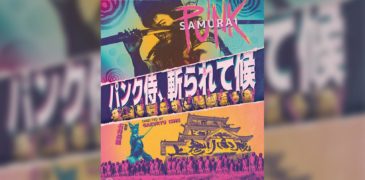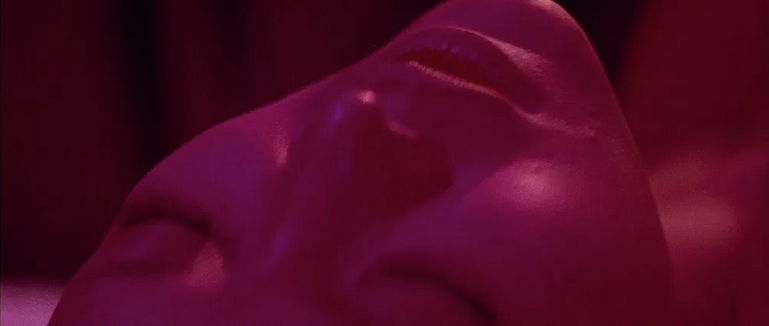
Dad, I’m going to make big money. I’ll get revenge on Uchiyama. I’ll avenge mother’s death! Mark my words.
The second movie from the Pink Films Vol. 3 & 4 set, apart from Abnormal Family: Older Brother’s Bride (1984), is Kan Mukai’s Blue Film Woman from 1969. Evidently, this particular motion picture greatly differs in terms of style and cinematography from Masayuki’s Suo movie. Blue Film Woman is a very avant-garde piece that strives to treat itself seriously, in spite of an uneven screenplay.
The movie’s significance becomes even more important due to its age. Released over 51 years ago, it is a miracle the 35mm negative (and a 1 inch mastertape soundtrack) survived to the present day and underwent a much-needed restoration by RapidEyeLab. The Blu-ray transfer is a pleasure to watch; however, it is not entirely free from the negative’s shortcomings (discoloration in certain shots or spots of dirt).
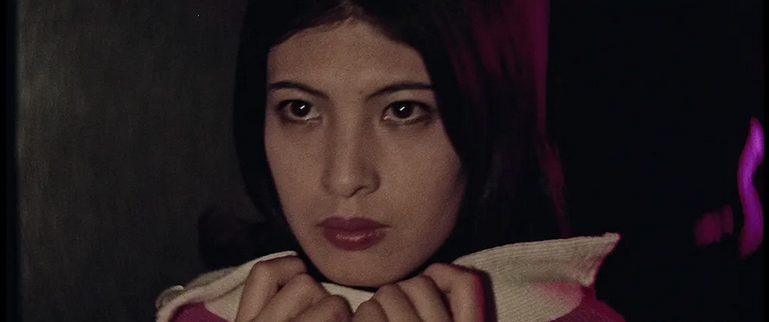
Blue Film Woman stands out of other productions of its time for being one the first all-colour pink movies. Indeed, this factor enhances the viewing experience but is also utilised as an important theme by director Kan Mukai throughout the story.
Because of bad investments at a stock market, a man finds himself in serious debt. He has to pay up at least 200,000 dollars by the end of a month to the loan shark called Uchiyama, but he is completely broke. The man and his wife plead and beg Uchiyama to give them more time, and the loan shark agrees on the condition that the wife will do sexual favours for him. Unfortunately, this deal indirectly leads to the wife’s death. Mariko, the victim’s daughter, is determined to avenge her mother and settle the score with Uchiyama.
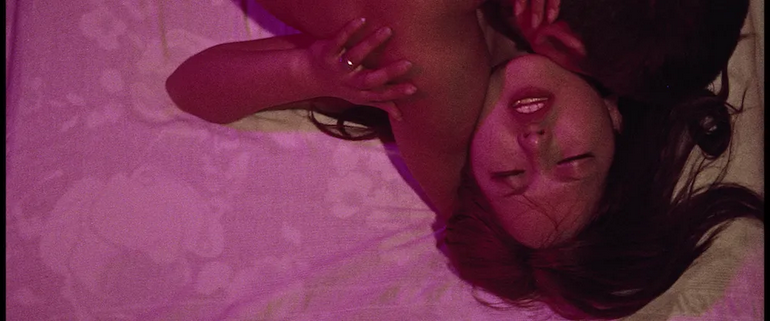
The premise of Blue Film Woman sounds like an ideal exploitation flick, but the reality is far from expectations. The movie starts off in a way that greatly resembles the famousBond opening sequences by Maurice Binder. Then, a very flashy content is thrown at the viewers in order to enhance the shock value. One would think that the heroine will take matters into her own hands and emerge triumphantly at the end of the film, but this is not the case at all. We just follow Mariko’s nightly misadventures, which in no way contribute to her character development.
The message that can be inferred from this movie is that the fate of a Japanese woman is doomed from the start (and it is always accompanied by various shades of blue and red filters). Mariko actually records her sexual encounters with rich businessmen on film tape so as to blackmail them later on, yet she is the one who falls victim of an illogical ending.
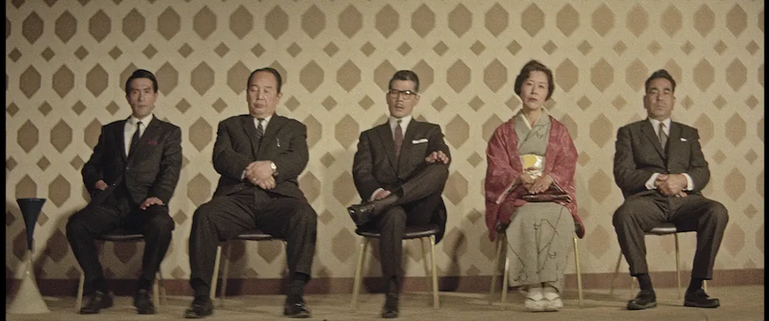
All things considered, it is definitely worth checking out Blue Film Woman for the technical craft of Ken Mukai, but the overall storyline is not that breathtaking. It is an interesting instance of an early pink production. Blue Film Woman is available in dual format Blu-ray from Third Window Films [Pink Films Vol. 3 & 4]. The remastered version also includes an additional film Abnormal Family: Older Brother’s Bride (1984) and a video essay by film historian Jasper Sharp.
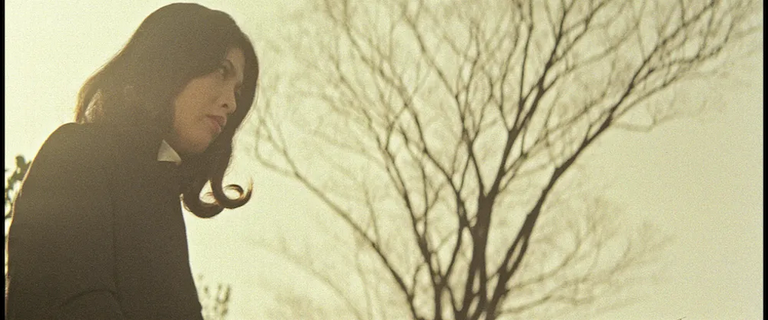
More from Third Window Films:
One Cut of the Dead Spin-off: In Hollywood (2019) Film Review
In 2017, a little movie from Japan called One Cut of the Dead arrived on the scene and took everyone by surprise. Being a micro-budget movie that was only made…
Interview with Toshiaki Toyoda – The Underground King of Japanese Cult Cinema
When considering currently acclaimed Japanese filmmakers there are several names that can readily spring to mind. From the exhaustively prolific creations of Takashi Miike to the bombastic and arresting works…
Hiruko the Goblin (1991) Film Review – You Ever Dance with Goblins in the Pale Moonlight?
“Strings of gold sway gently in the wind, They play a sweet and gentle melody, At night I walk in the pale moonlight, Together with a dream, A secret dream..”…
Film Review: Melancholic (2019) – Seiji Tanaka’s Millennial Thriller
If ever there was a personification of “It’s not the Destination, it’s the Journey”, it’s Seiji Tanaka’s 2018 Millennial thriller Melancholic. Released recently in dual format by the pioneeringThird Window…
Punk Samurai Slash Down (2018) Film Review – Audacious Reimagining of Jidaigeki Cinema
Punk Samurai Slash Down is a 2018 Japanese period action/drama, written by Kankurô Kudô and directed by Gakuryû Ishii (formerly known as Sogo Ishii). The film is based on the…
Go (2001) Film Review – A Competent Coming-of-Age Drama with a Pertinent Message
“A rose by any other name would smell as sweet.” The adage above—from William Shakespeare’s play Romeo and Juliet—has stood the test of time, having been referenced in countless other…
Oliver Ebisuno is a guy who likes watching (and reviewing) Asian movies. I have my own blog, Watching Asia Film Reviews, and I’m also submitting articles as well as editorials to MyDramaList, Kayo Kyoku Plus, and Asian Film Fans.




